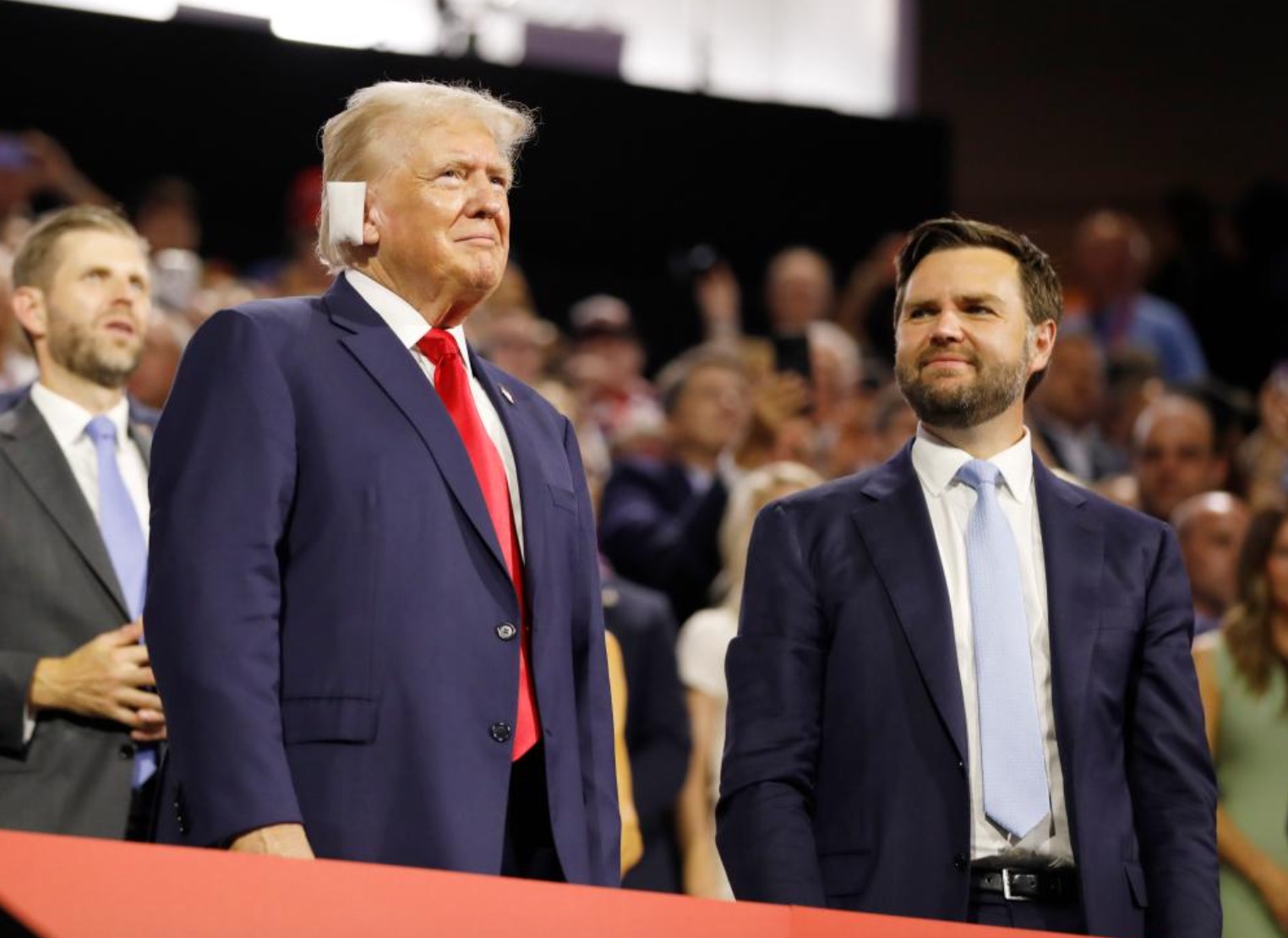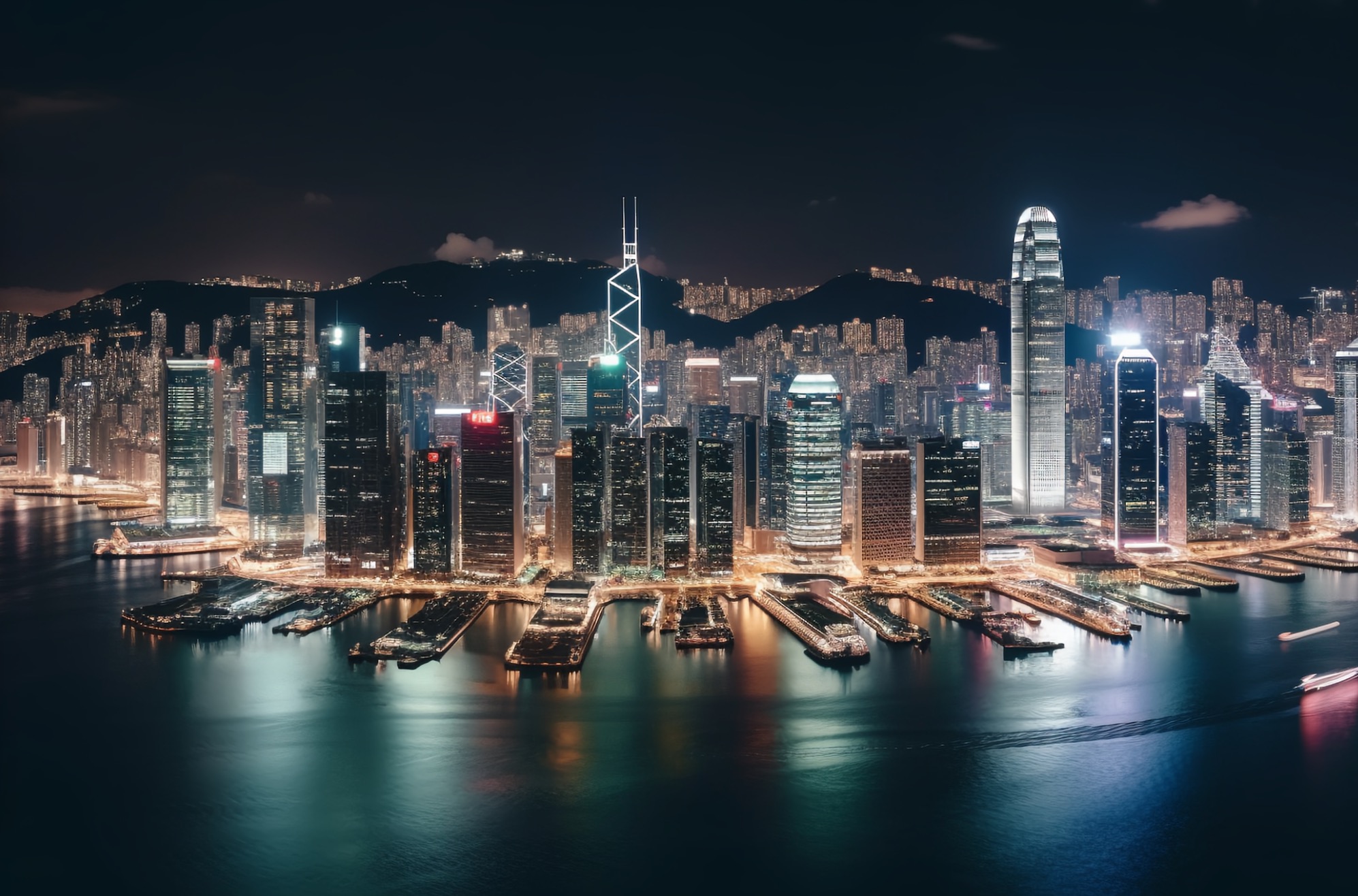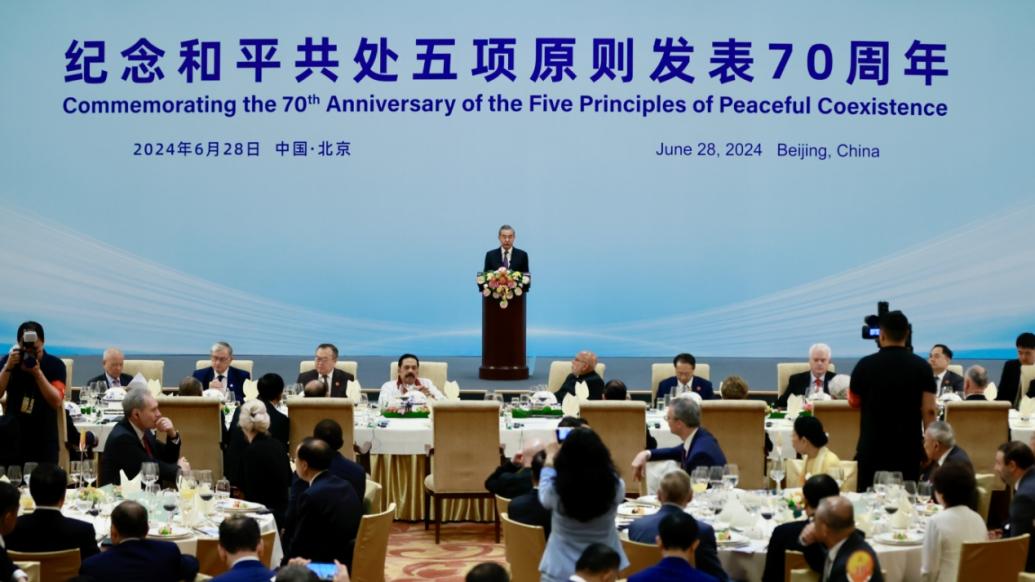Editor’s notes:
The National People's Congress (NPC) and the Chinese People's Political Consultative Conference (CPPCC) are critical events in China's political sphere, offering insight into the country's current status and future prospects, which has garnered international attention. In his first press conference, China’s new Premier Li Qiang expounded on the government's policy of "reform for development and opening up" with a composed, pragmatic, and distinctive attitude, which has raised people's expectations for the new administration and its policies. Li emphasized that the government should be an innovative executor when it comes to enhancing its construction. This article interprets China's new cabinet from the perspectives of institutions, personnel, and policies. It highlights the crucial signals to keep an eye on during the two sessions and press conference.
Institutions: Ensuring Effective Governance
During the National People's Congress (NPC) and the Chinese People's Political Consultative Conference (CPPCC) sessions, personnel appointments and new policy intiatives received much attention from both domestic and international observers. This is not difficult to understand. As the saying goes, "New people, new policies." The unveiling of a new government is naturally important for the Chinese people. Moreover, as the world's second-largest economy, China's internal development inevitably has a huge external impact, so it is natural for the international community to be concerned. However, in the attention paid to the NPC and CPPCC, the importance of "institutional reform" seems to have been overlooked. Institutional reform is even more critical than personnel appointments and new policy initiatives because it provides a political background for the latter. Furthermore, it is also necessary to pay special attention to whether China's institutional construction keeps pace with the times. In many countries, their systems have encountered significant problems because they could not keep up with changes in the social and economic environment. Since the 18th National Congress of the Chinese Communist Party (CCP), the party has emphasized institutional building. Institutional construction has been the central theme, from focusing on anti-corruption and advocating for clean governance after the 18th Congress to concentrating on party building and institutional construction after the 19th Congress to the government restructuring after the 20th Congress. These major institutional reforms should be the focus of attention.
Although the media frequently mentions the procedures for nominating candidates for the President, Premier, and Vice-Premier positions, their significance is often ignored. Proceduralization is crucial for institutional development. Chinese traditional culture places great emphasis on protocol, which is manifested in proceduralization.
Moreover, the importance placed on these procedures reflects a more significant institutional reform, namely, the institutional embodiment of the CCP's most crucial organizational principle – Democratic Centralism.

For a long time, the ruling party has been exploring the best embodiment of the democratic centralism system, answering the question of "where to be democratic and where to be centralized." Some Western media often use the term "centralization" to describe the 20th National Congress and the Two Sessions, understanding them through the Western concept of "separation of powers." They often conclude that China lacks opposing opinions and checks and balances. This view does not align with Western reality and cannot explain China's political development.
China is pursuing institutional modernization but is certainly not westernizing its institutions. Western preferences for non-Western political systems often present two options. The first option is a multi-party system, considered optimal, as the West measures the "democracy" it defines through rotating parties in power. The second option is a suboptimal choice of a leadership group that is full of contradictions and conflicts, even oligarchic politics. However, if these two situations occur in vast developing countries outside the West, it often results in political instability and underdeveloped socioeconomics. This is why China is not following the Western path.
China's experience suggests that the presiding team, whether it's the Political Bureau Standing Committee or various ministries of the State Council, should consist of members with a high level of consensus instead of resembling a Western-style "parliament." If the Political Bureau Standing Committee is considered a "political group," then the State Council should be a team that executes policies. The Western idea of "checks and balances" even does not explain Western politics. In both presidential and cabinet systems, the head of government holds power to form a cabinet. For instance, the US President has the authority to appoint all cabinet members and ambassadors and operates under the spoils system. Although in theory, the US is a model of "separation of powers," it is difficult to implement this principle in political reality. The politicization of the judiciary has undermined the so-called "judicial independence". Regarding legislation, if a single party controls both houses, they almost monopolize political resources; however, if both parties are evenly matched, it results in mutually vetoing "veto parties" and leads to an ineffective government.
Since the 20th Party Congress, there have been significant changes in the governing team. From the perspective of political science, a "cabinet" system is forming. The governing team emphasizes efficiency, and once policies are formed they must be implemented. In such a large country as China, if the executive power is too decentralized, each will inevitably do its own thing. The principle of "centralization" must be reflected in governance.
To ensure policy execution is centralized, democracy in policy formation becomes crucial. But where does democracy fit in? China has introduced the concept of "full-process democracy" in recent years, which requires democratic decision-making procedures at all levels of the central and local governments. Platforms like the Central Committee meetings, NPC meetings, and CPPCC meetings at the central level promote democracy where various social organizations (including think tanks) can express their views. Policy formation must be democratic and scientific, but policy execution must be centralized. This is the case with all good and effective political systems worldwide.
China has been exploring the best way to embody democratic centralism. The Two Sessions are a higher level institutionalization in this regard. While high-quality economic development is always discussed, high-quality system construction is equally important. The process of democratic centralism is crucial, and essential personnel and policies must follow procedures. China's institutional advantage lies in having both democracy and centralization where they are needed. Against the backdrop of such large-scale institutional reform, it is meaningful to examine personnel appointments and policymaking.
The recent reform of the State Council's institutions has been part of the process of China's institutional modernization since the 20th Party Congress. The reform aims to boost the motivation of the central and local governments and society. Nearly all system and institutional reforms reflect both centralization and decentralization principles. For example, the proposal to review the State Council's institutional reform plan includes the establishment of the Central Science and Technology Commission. While establishing this commission highlights the central government's emphasis on science and technology, Western perspectives only see it as "centralization." However, decentralization is also at play, as many technologies are allocated to various functional departments, including the Ministry of Agriculture, which gives implementing departments the power to act. Therefore, centralization and decentralization co-occur. The same applies to the financial sector reform, where we must promote science and technological innovation in finance while ensuring financial stability and orderly development to avoid major issues.
Personnel: “Innovative Executors”
At least two aspects characterize the team of Premier Li Qiang. First, most members have backgrounds in science, engineering, and economics, "technocrats," as referred to in academic circles. After the reform and opening up, these "technocrats" were once the most prominent feature of China's ruling team. This feature has re-emerged after being weakened for many years. Second, the team has a wealth of work experience at both local and central levels, as well as in coastal and inland areas.
Premier Li's work experience gives people a sense of “hope for the future.” Like Xi Jinping, Li rose from the lowest level of Chinese society. He started as a worker, passed the entrance exam, and went on to study agricultural machinery at Zhejiang Agricultural University. He began his political career at the grassroots level and then served as the Secretary of the CCP Wenzhou Municipal Committee, the Deputy Secretary of the Zhejiang Provincial CCP Committee, the Secretary of the Jiangsu Provincial CCP Committee, and finally, the Secretary of the Shanghai Municipal CCP Committee. He has extensive experience in local governance, particularly in Zhejiang, where he emphasized the importance of the private economy. In Zhejiang, he stressed that "the future of Zhejiang's private economy depends on the economic subject, especially whether private entrepreneurs are still active and creative." At the press conference of the Two Sessions, Li's statement on the development of private enterprises was received with great attention and importance at home and abroad.
He is a down-to-earth and pragmatic worker known for his ability to solve problems efficiently. A problem-solver adept at not only identifying new problems, he solves them with practical solutions. During the press conference, he emphasized, “When we sit in the office, we only see problems, but when we go to the grassroots level, we only see solutions." His own political experience has already shown this. He wrote a book entitled Wenzhou Commentary: Wenzhou from the Perspective of a Wenzhou Native and the Secretary of the Wenzhou Municipal Party Committee. He affectionately tells the story of Wenzhou's development from a Wenzhou perspective. Even if one is unfamiliar with him, one can easily discern his governing style once you learn about his political career.

At the 20th Party Congress last year, Li was chosen as China’s new Premier. Since then, Li has conducted extensive research in various fields. This press conference revealed that China's leaders consider issues not only from the perspective of the government or themselves but also from the standpoint of entrepreneurs (private and state-owned) and ordinary people. They deeply understand China's development process and acknowledge that the people are the mainstay of society, entrepreneurs the backbone of the economy, and officials the backbone of the government. Therefore, "putting people first" is more than a mere slogan; they work hard to comprehend the needs of specific fields and allocate appropriate policies. When economic policies prioritize the needs of businesses over the needs of the government, they are destined for success. When social policies place the needs of society above the interests of the government, they, too, are bound to be successful. The reason is simple: all policies require a social foundation. China's policies after the COVID-19 pandemic were entirely based on what society needed, as opposed to being a reactive change, as foreign media had reported. This reflects an efficient and service-oriented government.
China's historical experience has demonstrated a universal truth: "prime ministers must rise through the ranks of local and regional officials, while exceptional generals must rise through the ranks of ordinary soldiers." Both Xi and Li have climbed the ladder from the grassroots level and gained a genuine understanding of the country's development process. Therefore, during the press conference, Li shared his frontline experiences, stating, "When we sit in the office, all we encounter are problems, but when we go deep into the grassroots, all we see are solutions... We need to encourage cadres at all levels to go to the frontline, ask the people about their needs, and seek advice from them." Li's "putting people first" philosophy is not just an empty slogan but a concept he has derived from his extensive frontline work experience. Whether he is in Zhejiang, Jiangsu, or Shanghai, in every situation, he begins by asking: Who are the key players in this area? What do they need? Then, he formulates effective policy solutions accordingly.
In recent years, Zhejiang's development has been held up as a national model and chosen by the central government as a pioneer in the drive toward common prosperity and modernization. Zhejiang's success is attributed to two factors: the market economy and many cadres and officials who understand it. Premier Li is a perfect example of this. To officials from Wenzhou, the government is a service provider that serves the economy and society. During the press conference, Li stated, "Leaders at all levels should sincerely care about and serve private enterprises, build a close and clear relationship between government and business, and promote a good atmosphere of respecting entrepreneurs and businesspeople throughout society." By adhering to this approach, Li drives local economic development. His unwavering support for the construction of Tesla's Shanghai super factory speaks volumes about his attitude towards foreign investment.
The media's portrayal of Li's attitude towards private entrepreneurs as merely "very friendly" does not justify that the private economy is an integral component of China's modernization process. Li's experience with the "Wenzhou Model" has been one of continuous growth and adaptation in the face of constant questioning. This has made him especially empathetic towards private enterprises. At the press conference, he noted, “last year, for some time, there were some incorrect opinions in society that made some private entrepreneurs feel anxious." In the past, some officials would dictate to entrepreneurs, saying, "I want to do this," as if it was a guaranteed way to achieve success. However, Li flips this mindset by focusing on what society needs, what private entrepreneurs need, and what ordinary people need before formulating effective policies. This approach embodies the ideals of an effective, service-oriented government, which we should aspire to have.
Policy: Pursuing High-Quality Development in Continuing Globalization
To achieve Chinese-style modernization, the pursuit of high-quality development is imperative. The 20th National Congress of the CCP report provides extensive discussions on the meaning of "high-quality development," with in-depth analyses of scientific and technological innovation, modernization of agriculture and rural areas, and institutional openness in regulations and standards management. These discussions serve as elaborate interpretations of the concept of high-quality development.
After the 20th Party Congress, mobilization conferences for high-quality development were held throughout the country. It should be noted that although various regions have set GDP growth targets of 5% or 5.5%, not everyone fully understands what high-quality growth is and how to pursue it. Blindly chasing GDP does not equate to high-quality GDP. For instance, repeatedly building and demolishing roads and bridges might boost GDP, but it doesn't benefit the people's livelihood and economy. Although GDP increases, the overall wealth of society does not, which is something China must avoid. It's time for China to have the resolve to prioritize quality over quantity; it's acceptable to have slightly lower GDP growth as long as it's high quality. Therefore, Li emphasizes: "The vast majority of people don't fixate on daily GDP growth; what they care about are tangible matters such as housing, employment, income, education, healthcare, and the ecological environment."
The new government has realized that achieving high-quality development is difficult. At the press conference, Li pointed out, "Although our country's economic and social development has achieved tremendous success, with the economy's total output ranking second in the world, the development is still imbalanced and insufficient. When distributed among a population of over 1.4 billion, any aggregate indicator results in limited per capita levels. China's current development is more focused on solving the problem of "having or not having.” Still, the next step requires a greater emphasis on solving the problem of "good or not good,” especially in improving technological innovation, building a modern industrial system, promoting green transformation of development methods, and so on."
China's current goal is to achieve comprehensive prosperity, and to achieve this goal by 2035; it will rely on high-quality development. Among them, the high-quality development of basic research and scientific innovation is crucial. Whether to overcome the middle-income trap or achieve high-quality development, overcoming the middle-income technology trap is key. From the perspective of world history, the experiences of developed economies in Europe and America, as well as Asian economies such as Japan and the "Four Asian Tigers" that have successfully overcome the middle-income trap, and those Asian and Latin American countries and regions that have been stuck in the middle-income trap for a long time, all demonstrate that technological progress is the most critical in achieving high-quality development.
"Technology is the primary productive force," including basic scientific research and applied technology. Basic scientific research includes two aspects: breakthroughs in key national areas and cutting-edge fields. Applied technology refers to market and business-oriented scientific innovation.
The external challenge facing China is that Western countries are trying to strangle and systemically decouple from the country. For example, Japan and the "Four Asian Tigers" could cross the middle-income trap and become developed economies because there was a global technology market at the time. However, due to the anti-globalization policies of Western countries, China is currently in a disadvantageous position in the global market.
As for internal challenges, after the reform and opening, China's modernization and globalization have mutually reinforced and promoted each other because the Western technology market has been open to China, even though the country has never received the most advanced technology. Therefore, China's current challenge is to shift from relying mainly on applied technology to original innovation.
From a broader historical perspective, a country's development is always dominated by the application of technology. Britain was the first industrialized country, and early on, the United States, France, and Germany used British technology, while Japan followed Western technology and South Korea followed Japanese technology. After China's reform and opening, it applied technologies from various countries, forming a complete industrial system. The problem it faces now is technological upgrading.
Despite some Western countries' efforts to engage in deglobalization, China is determined to continue promoting globalization. China's high-quality development needs to be achieved through continued openness, and as the world's second-largest economy, China's open policy is also an international public good. Therefore, Li emphasized, "We will also align ourselves with high-standard international economic and trade rules and further expand opening up. China's door to opening up will only get wider, the environment will only get better, and the services will only improve." He also cited China International Import Expo as an example of China's open policy. The China International Import Expo is a major initiative for China to open up its market and share development opportunities with the world. It has been held for five consecutive years, even during the pandemic, with more than 2,800 companies from 127 countries and regions participating.
Equally important is that the open policy is an effective means to resolve the U.S. and Western "decoupling." Li pointed out, "In recent years, some people in the United States have been promoting the idea of decoupling between the two countries, which is sometimes very popular, but I do not know how many people can truly benefit from such hype. According to statistics, China-U.S. trade reached nearly $760 billion last year, setting a new historical record. China and the United States are interdependent and benefit from each other's development." "China and the United States can and should cooperate. There is great potential for cooperation between China and the United States. Containment and oppression are not good for anyone."
Most officials in this government have worked their way up from the grassroots and understand the situation in China while also possessing a contemporary worldview. Understanding China’s complexities is not enough without a worldview, just as a worldview falls short without a deep understanding of China's issues. Looking ahead, we can expect that this government will effectively combine China's perspective with a global outlook to find effective solutions to China's challenges while also assuming China's responsibilities as a major country on the international stage.


























Leave a Reply
Your email address will not be published. Required fields are marked *